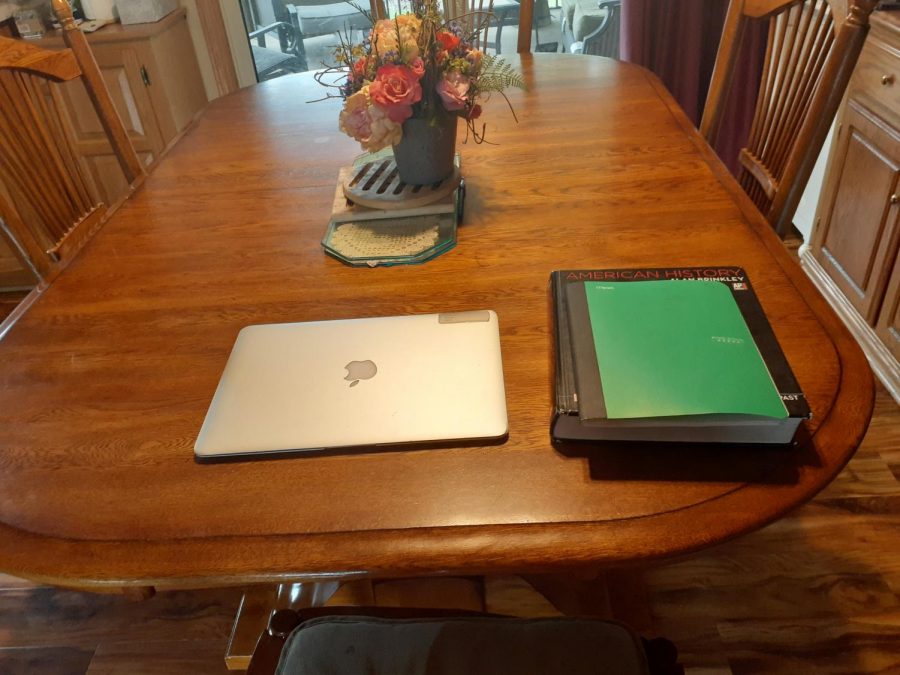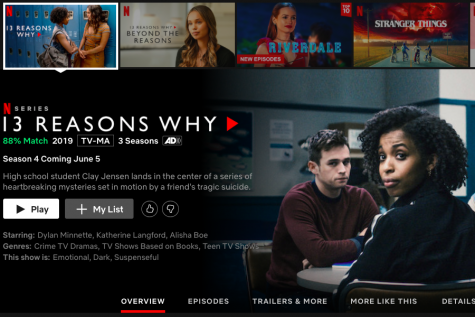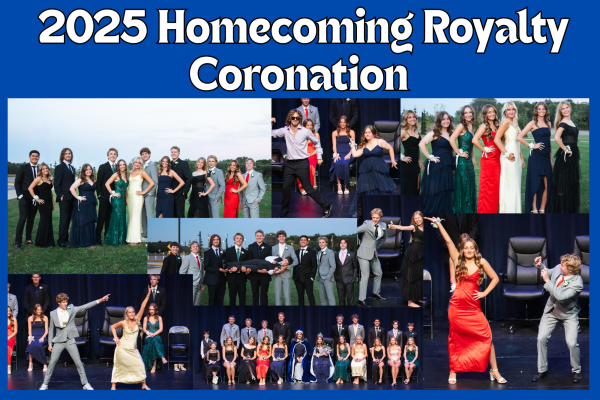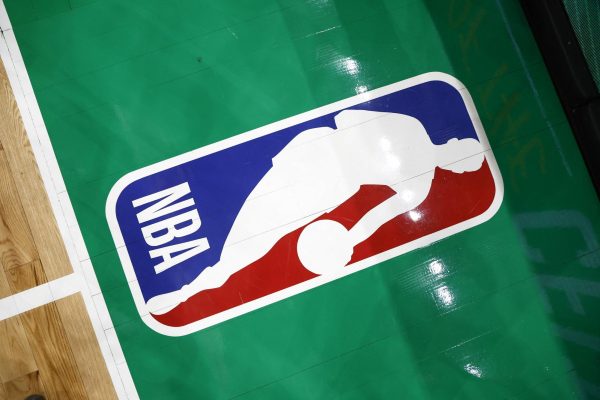How the 2020 AP test adapted to the global pandemic
Students prepare for a new kind of AP testing this year this time with notes.
As the first week of AP testing comes to a close, students are beginning to see a few problems with the new system of AP testing.
The pandemic opened the doors for new problems for College Board. One of the main and earliest issues was that of cheating: how do you keep the students from cheating when there is no one to hold them accountable?
One thing College Board did to remedy this issue was making the test open note, however, when researching online, students were unable to use sources from other people, and plagiarism rules were strictly enforced. Students were expected to form their own opinions and stay away from anyone else’s work.
This opened many students up to confusion on the loose terms of someone else’s work. Take the AP United States History test for example, while it was fine to look up dates and straight facts for your essay, any facts from opinion articles could be considered cheating.
While there were rumors of College Board putting false information on sites like Wikipedia, nothing was confirmed. However, this still deterred some students from looking up information to help their studying or test. One student who took the AP United States History exam said, “I heard the rumors and I stayed away from those sites, both during studying and the test.”
This also brought up the question of how College Board was going to enforce these new rules. Because there were no teachers present to watch the students, College Board took a different route.
College Board admits to monitoring social media sites and even posting on social media to deter and catch students looking to cheat.
On student tests, College Board used “plagiarism detection software and post-administration analytics” to ensure the validity of students’ exams. Alongside these students, exams were sent to teachers to try and verify it was the students writing style.
Many students taking a variety of AP exams were faced with different prompts than that of their classmates. While this may seem like a good system, things are different when you take a closer look. Rating the difficulty of these prompts is completely subjective, so that begs the question: are all the prompts given to students the same level of difficulty? How does College Board decide which prompts to use?
Some of the tests such as Literature and Composition and the United States History exams had a variety of questions. This brings up the problem of fairness. While the difficulty of prompts is subjective, some students may have an unfair advantage or disadvantage with certain questions.
Students also had trouble submitting their work once they were finished. College Board has since stated that outdated browsers seem to be causing a glitch in student responses. This makes submitting responses near impossible for the students with outdated browsers.
College Board recommends students use the updated version of Google Chrome, however, at Sartell, some students ran into issues downloading the updated version and were forced to use other browsers.
In Sartell, there are still some students taking their tests within the next week, but of the approximately 385 exams taken 96% of them were submitted successfully. That leaves 4% of exams that had issues in submission, forcing the students to either retake it in early June or forfeit all their work.
College Board is offering retests, however, there is only a 48 hour period after the test to sign up. The students get a confirmation at the end of the retest form and an e-ticket two days before the retest. However, it was easy for some students to overlook this, and without a confirmation email, students are left wondering if their request was accepted.
On top of technological issues, students had to face early wake-up times and unfair disadvantages of 3 AM and 5 AM testing. Because all tests are to happen at the same time, students in countries outside of the United States are forced to wake up at the early hours of the morning to take the test. This leaves these students at a major disadvantage as they are forced to wake up and take the test in the hours when they would normally be asleep.
As College Board rises to the challenge of testing during a global pandemic, some of the new testing protocols taken present new challenges for the students.

Alyssa Haus is a junior at Sartell High School. Her favorite activities include drumline and marching band. Reading and watching musicals are just a few...














